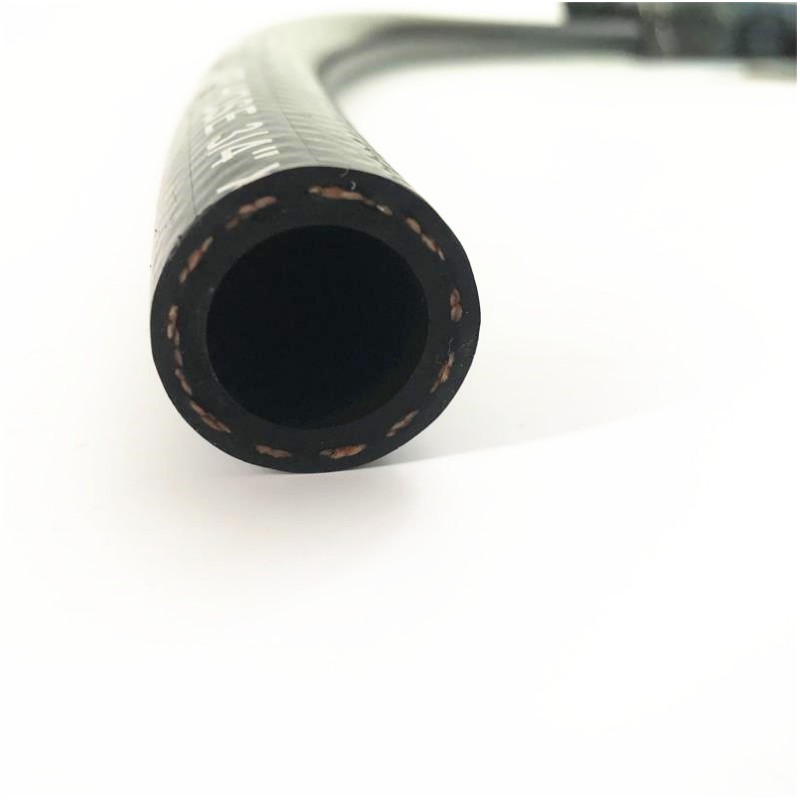Aug . 06, 2024 11:06 Back to list
High-Quality SS316 Metal Hose Manufacturing with CE Certification for Reliable Industrial Applications
Understanding CE Certification for SS316 Metal Hose Manufacturing
In today’s global marketplace, the demand for high-quality components is ever-increasing, especially in industries where safety and reliability are paramount, such as food processing, pharmaceuticals, and chemical manufacturing. One such component that plays a critical role in these sectors is the metal hose. Among various types, the SS316 (stainless steel 316) metal hose stands out due to its superior corrosion resistance, durability, and temperature resistance. To ensure that these products meet the stringent safety and quality standards required by different markets, CE certification has become a crucial aspect for manufacturers.
CE certification, which stands for Conformité Européenne, is a mandatory certification for products sold within the European Economic Area (EEA). This certification indicates that the product complies with EU safety, health, and environmental requirements. For manufacturers of SS316 metal hoses, obtaining CE certification is not just a legal obligation but a testament to their commitment to quality and safety.
Why is SS316 Preferred?
SS316 stainless steel is a material of choice for manufacturing metal hoses due to its exceptional resistance to corrosion, especially in chloride environments. This makes it ideal for applications involving chemicals, saline solutions, and temperatures that could otherwise compromise the integrity of the hose. The durability of SS316 also means that it can handle high pressure and extreme temperatures, making it versatile across various applications.
The CE Certification Process
For a factory producing SS316 metal hoses to achieve CE certification, they must undergo a rigorous assessment process. This typically involves several key steps
1. Product Assessment Manufacturers need to conduct a comprehensive evaluation of their products to determine which directives and standards apply. This includes standards related to safety, performance, and environmental impact.
2. Testing and Evaluation The hoses must undergo a series of tests to ensure they meet the required standards. This may include pressure tests, temperature resistance evaluations, and corrosion resistance tests.
ce certification ss316 metal hose factory

3. Documentation A technical file containing all relevant documentation must be compiled. This includes design specifications, manufacturing processes, and test results. This file proves that the product meets European standards.
4. Quality Control A robust Quality Management System (QMS) must be in place to regularly monitor and ensure that production consistently adheres to the established quality standards.
5. Declaration of Conformity Once all testing and documentation have been completed and are satisfactory, the manufacturer must issue a Declaration of Conformity (DoC), stating that the product meets all necessary directives.
6. Affixing the CE Mark Finally, upon successful completion of all the above steps, the SS316 metal hoses can bear the CE mark, officially indicating their compliance with EU regulations.
The Importance of CE Certification
Obtaining CE certification brings several advantages to a factory specializing in SS316 metal hoses. First and foremost, it opens doors to the European market, as many countries within the EEA require CE certification for entry. Secondly, it instills confidence in customers regarding the quality and safety of the products. Moreover, being CE certified can enhance a manufacturer’s reputation and competitiveness in a global market increasingly focused on compliance and quality assurance.
Conclusion
In summary, CE certification is an essential process for factories manufacturing SS316 metal hoses. It not only ensures compliance with European regulations but also promotes a commitment to safety, quality, and environmental responsibility. As industries evolve and the demand for high-quality products continues to grow, achieving CE certification will remain a significant milestone for metal hose manufacturers seeking to establish themselves as leaders in the market. The journey to certification may be rigorous, but the benefits it confers in terms of market access and consumer trust make it a worthy endeavor.
-
Best Four Steel Wire Spiral Hose Hydraulic R12 – Durable High-Pressure Hose Manufacturer
NewsJul.08,2025
-
High-Quality 1/4 Hydraulic Hose – Soft, Flexible & Durable Rubber Hoses for Industrial Use
NewsJul.08,2025
-
1 1 2 Inch Hydraulic Flexible Hose - Durable, Reliable, High-Pressure Solutions
NewsJul.07,2025
-
High-Quality 1 2 Rubber Hose - Durable, Flexible Hydraulic Solutions
NewsJul.07,2025
-
Discover SAE Hydraulic Hose Types - High Quality & Durable Hoses from Leading Factory Supplier
NewsJul.06,2025
-
High Pressure Wire Hydraulic Rubber Hose Supplier Durable & Reliable 1SN Hose Solutions
NewsJul.06,2025
